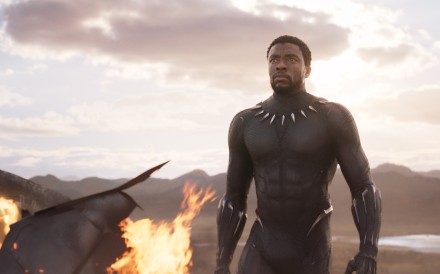Jordan said he wanted to do justice to the essence of what Killmonger represents in the movie.

“Of course it’s an extreme, exaggerated version of the African diaspora from the African-American perspective, so to be able to take that kind of pain and rage and all those emotions that Erik kind of represents from being black and brown here in America … that was something I didn’t take lightly,” Jordan said.
“I didn’t have a process” for being Killmonger, he said. “I just did whatever I felt I needed to do or whatever I felt was right in the moment every step of the way.
“I didn’t have an escape plan, either. When it was all over, I think just being in that kind of mind state … it caught up with me.”
When filming finished, Jordan admitted that it was difficult to go back to being himself.
“It was a little tough for me at first,” he said about getting out of the mindset of his character. “Readjusting to people caring about me, getting that love that I shut out,” he continued. “I shut out love, I didn’t want love. I wanted to be in this lonely place as long as I could.”
He said seeing a therapist “helped me out a lot”, despite the criticism men face about receiving mental health treatment.
“Your mind is so powerful. Your mind will get your body past a threshold that it would have given up on way before,” Jordan said. “Honestly, therapy, just talking to somebody just helped me out a lot. As a man you get a lot of slack for it. … I don’t really subscribe to that. Everyone needs to unpack and talk.”
At the end he realized he was still just a nigger.


